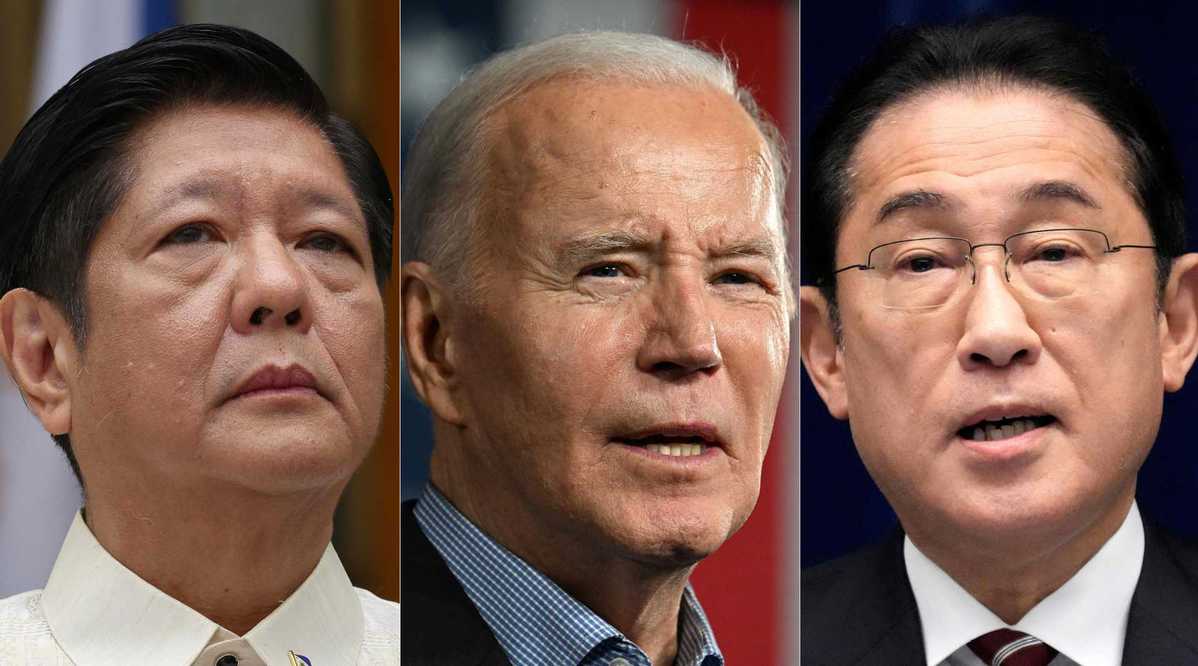Japan and Philippines gambling on US game will be a costly bet for themselves and region: China Daily editorial
chinadaily.com.cn | Updated: 2024-04-11 20:18

Before setting off from Manila on Wednesday for Washington for the first trilateral summit between the United States, the Philippines and Japan, Philippine President Ferdinand Marcos Jr. claimed that there would be an agreement among the three on South China Sea issues.
"The main intent of this trilateral agreement is for us to be able to continue to flourish, to be able to help one another, and of course to keep the peace in the South China Sea and the freedom of navigation," Marcos told the media.
At the same time, Marcos said he aims to explore ways to advance cooperation with Japan and the United States in defense and maritime cooperation and key areas such as infrastructure, semiconductors, cybersecurity, critical minerals and renewable energy.
That leaves no doubt about what the Philippines can give to the United States, and what it looks forward to getting from Washington for that.
That Marcos still needs to keep stressing the same thing to Washington after sacrificing the Philippines' strategic autonomy to the latter's geopolitical game for about two years since he took office demonstrates the Philippines has not been satisfied with what the US has provided it so far, despite it doing everything it can to do the US' bidding in provoking China in the South China Sea.
That's why US Commerce Secretary Gina Raimondo made a visit to the Philippines in March to verbally offer $1 billion in investment in the aforementioned sectors.
What the US has promised to the other members of the Association of Southeast Asian Nations is even more limited and symbolic, meaning there is little support for the Philippines' actions under that collective framework. The Philippine president's reiterating of his demands that the US needs to increase its investment and input in these sectors shortly before leaving for the summit in Washington on Thursday indicates the gathering is by no means about strengthening the three countries' economic partnership on an equal footing but an occasion for haggling over the price of their security and military cooperation targeting China.
Moreover, Japanese Prime Minister Fumio Kishida on Wednesday made clear that China is the focus of the three leaders' get-together. In a slip of the tongue in his joint news conference with US President Joe Biden, he referred to China as Japan's close ally, instantly correcting it to the US.
By acting as willing and proactive proxies of Washington, both the Philippines and Japan are doing a disservice to the other regional countries in the Asia-Pacific, which are working together to maintain peace and stability, and strengthen their development cooperation. Their betting on the success of the US' China containment strategy will prove to be a costly strategic misjudgment for themselves, and their tangible inputs will far outweigh what the US promises to actually deliver.
























